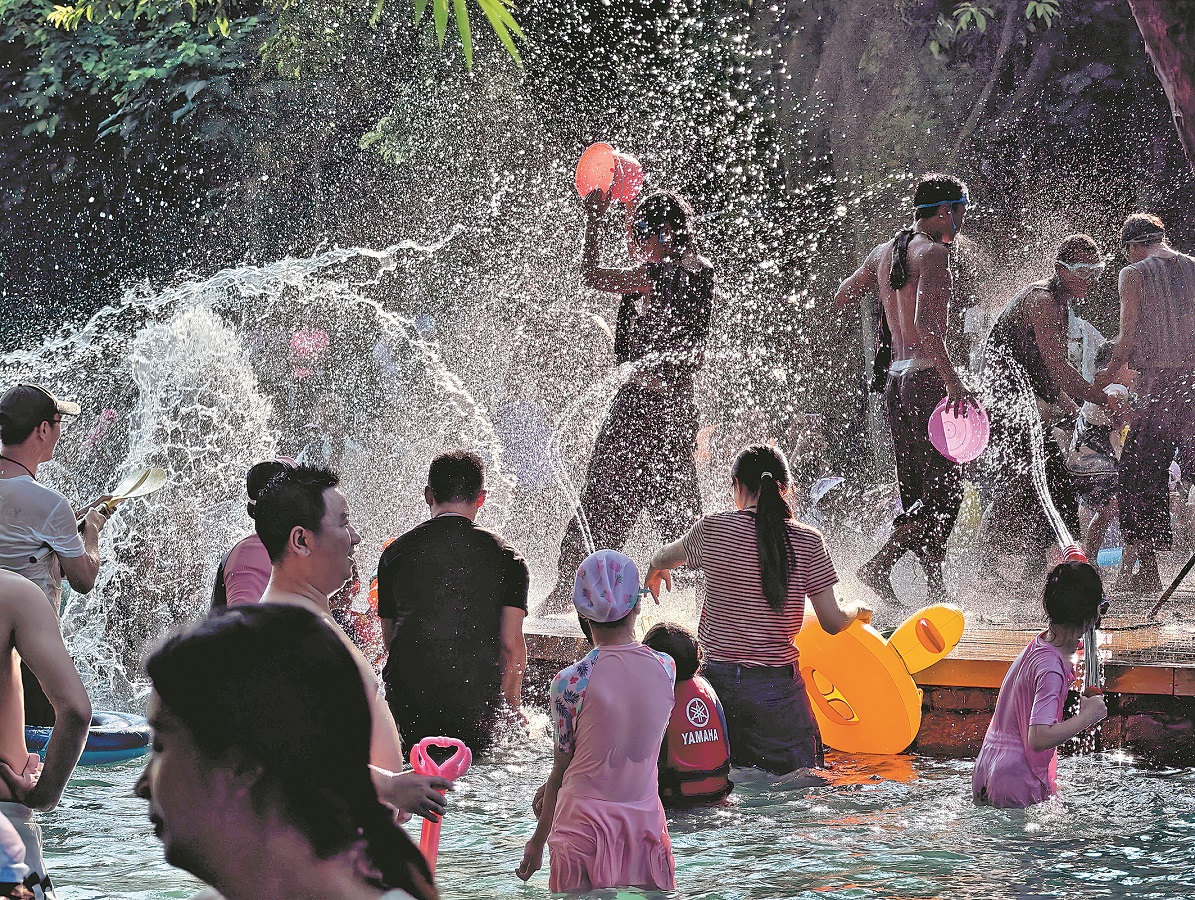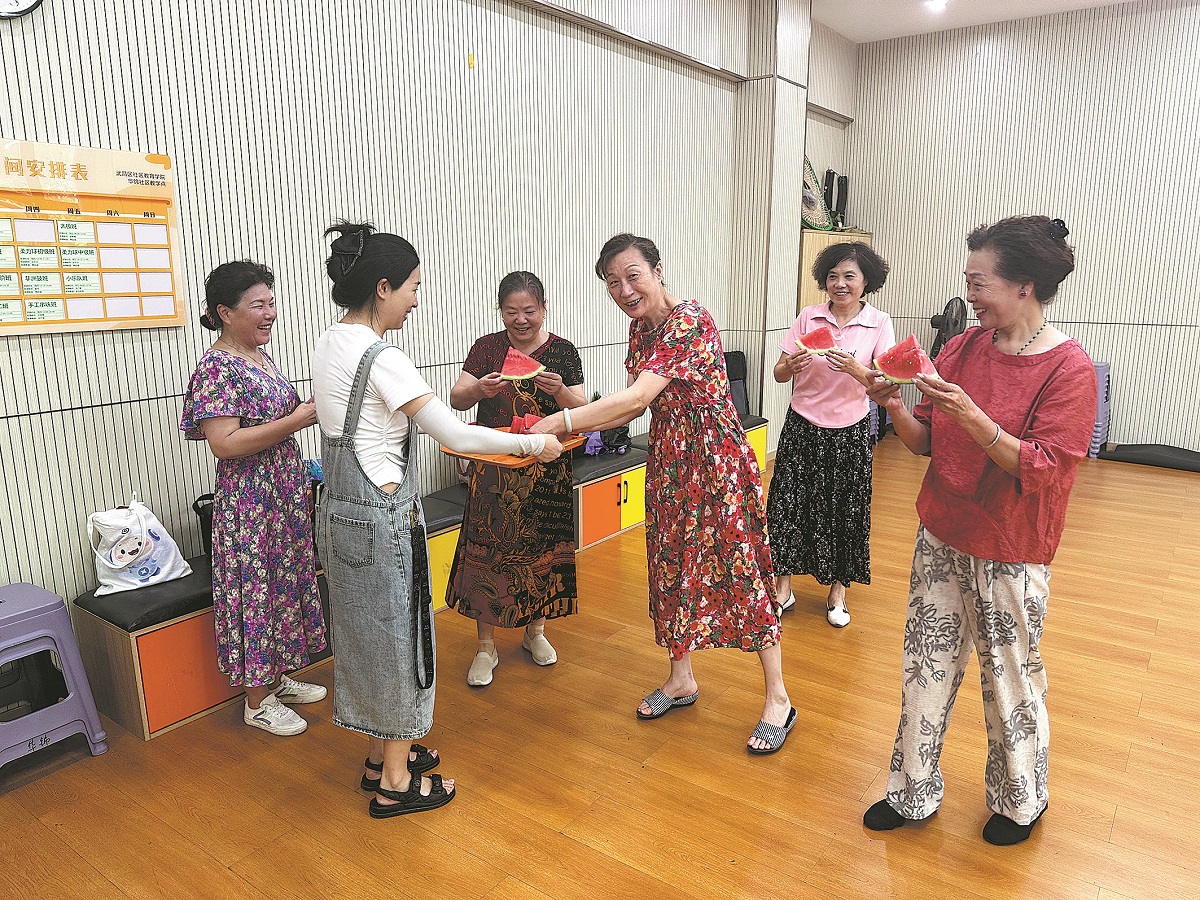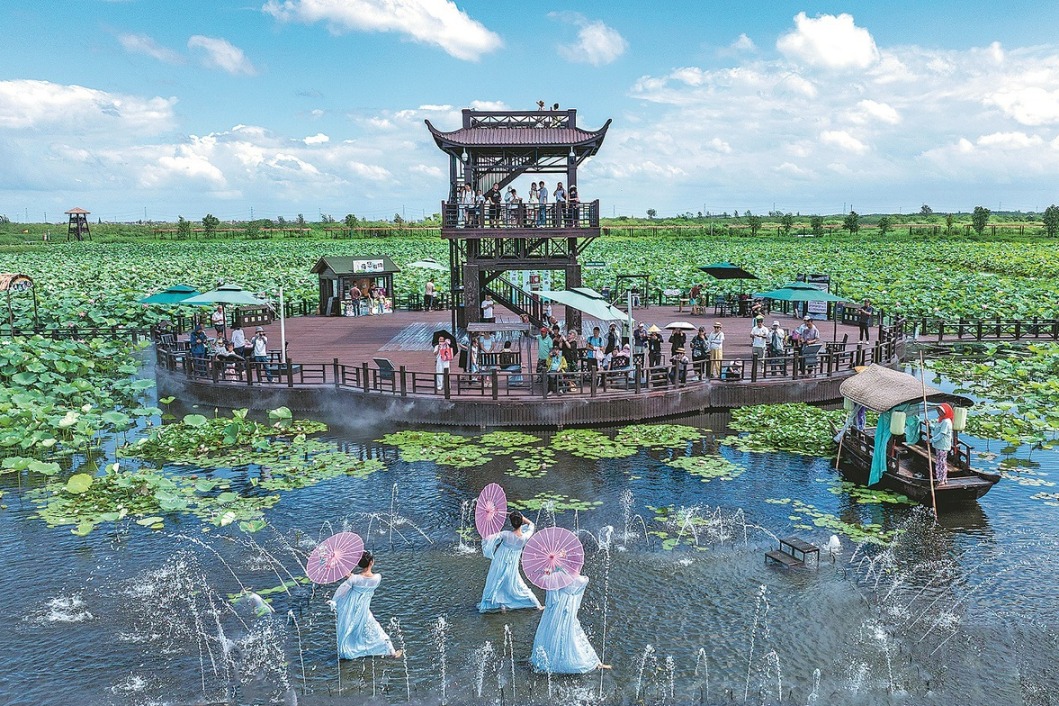Cool-down shelters help hot and bothered survive summer swelter
Measures taken nationwide to negate record temperatures






Chilling in the metro
Zhengzhou has opened 58 of its public shelters for people to cool down.
Among these, Zhengzhou Metro has provided 35 cooling spots, equipped with amenities such as rest chairs, tables, chess and card facilities, bookshelves, anti-heat medication, umbrellas and power charging banks.
Around noon, construction workers can be seen entering metro stations to have lunch and take a nap.
Yan Bin, 58, said he and his co-workers go to the subway station for their midday break to avoid the most intense heat of the day. "It has been unusually hot lately — just standing in the sun for a while feels like my skin's being cracked open by the heat," he said.
Subway station staff patrol the cooling spots and remind people to keep their shoes and clothes on, to not disturb commuters.
Hu Yanke, 43, took his daughter to a subway cooling spot as their home was stuffy with no airflow.
"This place is great. We can get some work done, play cards, and chat with others. I even brought badminton gear. My daughter is about to start fourth grade after the summer vacation. We come here after her afternoon nap so she can read and do schoolwork," he said.
Even in Northeast China, the coolest region in the country, early July was abnormally hot.
Most universities in the region don't have air conditioners as they're considered unnecessary. However, this summer there have been reports of college students sleeping in tents in underground parking lots, playgrounds or corridors.
Liaoning University released a notice on July 9, saying it was planning to install air conditioners.
In Mohe, Heilongjiang province, the northernmost city in China, a popular winter tourist destination, bed-and-breakfasts have begun to install air conditioners to cope with the high temperatures.

Li Yongqiang, who runs Zaishanye bed-and-breakfast in Beiji village, Mohe, recently equipped all of his 10 rooms with air conditioners at a total cost of 13,000 yuan ($1,812), as temperatures earlier this month hovered around 35 C.
"But it feels like 40 C," he said, adding that the weather has been abnormal in recent years, but this year it is more obvious. "June has never been so hot," he said.
Elsewhere, people are facing the heat wave with humor.
Multiple outdoor LED screens in Changsha, Hunan province, have started playing videos of air conditioners and fans, creating a "cyber-cooling" effect to offer psychological relief from the heat. The screens have drawn crowds of tourists as well as amused locals, with people snapping photos to share online.
The maximum temperature of the city from July 14 to 17 reached 39 C.
Hours for front-line sanitation workers in Changsha have been shortened to between 5 am and 10 am. During peak heat hours from 10 am to 4 pm, mechanical cleaning equipment takes over.
To support these workers, the city has established temporary rest stations in key operational areas. Some street-side businesses have also launched cooling services, offering free cold beverages for outdoor workers and passersby.
Hunan's maximum electricity load this summer is projected to exceed 50 million kilowatts, an 8.4 percent increase from historical records. Under extreme weather conditions, demand could reach 52 million kW, up 10.8 percent, data from local authorities showed.
Zhu Junfei, a spokesperson for State Grid Hunan Electric Power, said this year's high-temperature days above 35 C are expected to exceed 45, surpassing summer averages.
Reinforcements of the grid and emergency protocols have been accelerated to ensure a reliable power supply, he added.
In Nanjing, Jiangsu province, many ice-making factories have boosted production to meet rising demand in the vegetable, aquatic products and logistics industries.



















